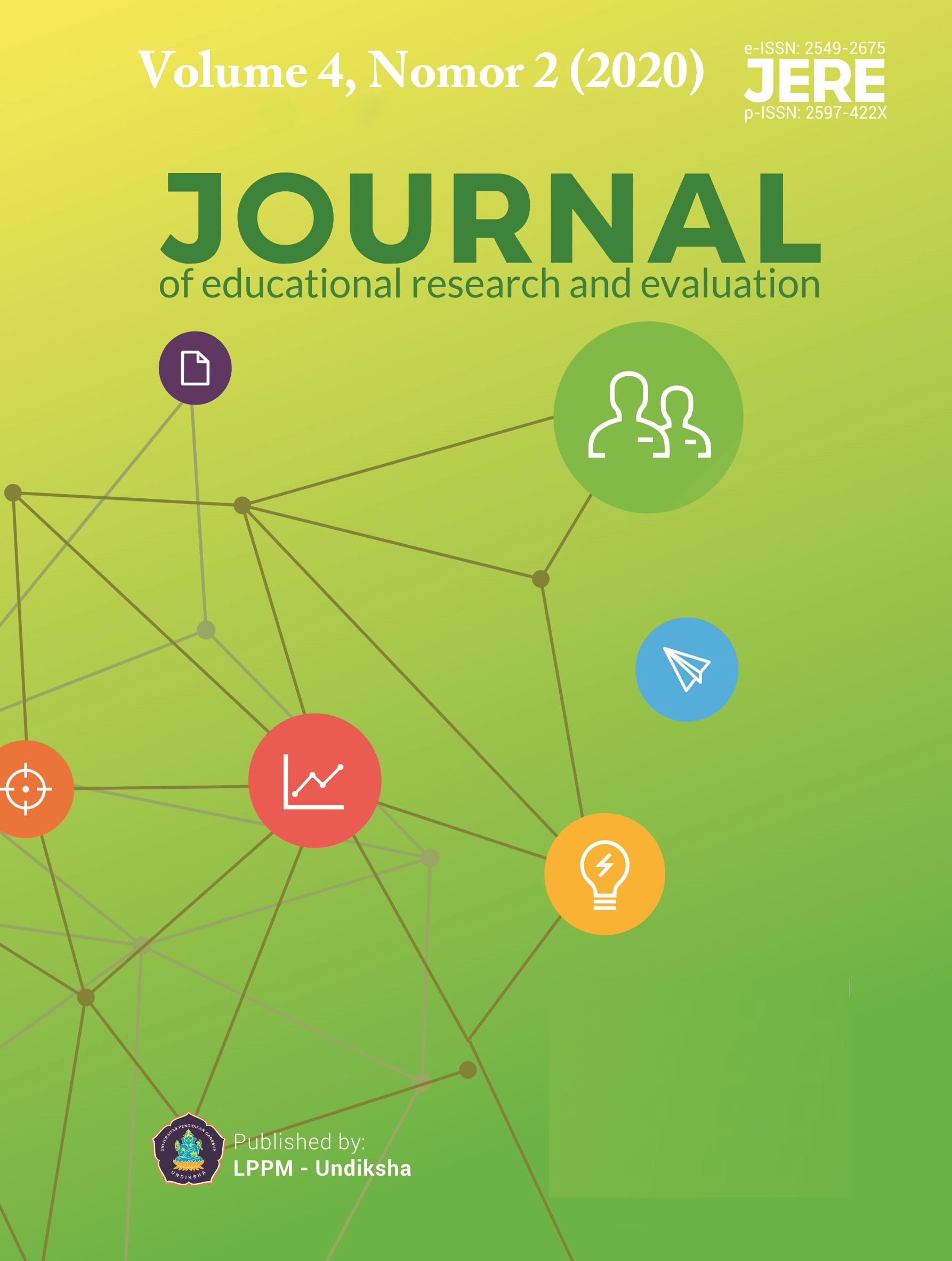Correlation of Self-Confidence and Student Learning Motivation Against Learning Outcomes of Class X Digital Simulation
DOI:
https://doi.org/10.23887/jere.v4i2.23095Keywords:
self confidence, learning motivation and learning outcomesAbstract
This study aims to determine the relationship of trust and learning motivation on learning outcomes of simulation and digital communication in class X students. The results of data analysis showed confidence with the learning outcomes ie r count> r table (0.273> 0.113), there is a positive and significant relationship and continued with t-test> t table (4,437> 1,960), The first hypothesis is accepted, learning motivation with learning outcomes is r count> r table (0.366> 0.113), there is a positive and significant relationship and continued with t-test> t table (2,272> 1,960), the second hypothesis is accepted, self-confidence and motivation to learn with shared learning outcomes. the result is r count> r table (0.2733> 0.161), a positive and significant relationship and continued with the F-count test> FT table (12.33> 1,750)References
Agus Irianto. (2004). Statistics. Jakarta: Kencana.
Anas Sudijono. (2011). Introduction to Educational Evaluation. Jakarta: King of Walipers.
Dimyati & Mudjiono. (2009). Belajar dan Pembelajaran. Jakarta : Rineka Cipta.
Djamarah, Syaiful Bahri and Aswan Zain. (2011). Teaching and learning strategies. Jakarta: Rineka Cipta.
Husna Asmara. (2015). Educational Profession. Bandung: Alfabeta.
Menrisal, M., & Utari, E. (2017). The Relationship of Learning Motivation to Student Learning Outcomes of Computer Skills and Information Management (KKPI) (Case Study X of Accounting Department of SMK Nusatama Padang). INFORMATION TECHNOLOGY EDUCATION UPI-YPTK, 4 (1).
Nana Sudjana. (2011). The basics of the teaching and learning process. Bandung: Sinar Baru.
Nasution, S. (2010). Educational Sociology. Jakarta: PT Bumi Aksara.
Nidawati. (2013). Study in a psychological and religious perspective. Pioneer journal, volume 1, no 1, July-December (2013).
Noviyani (2017). Efforts to improve student learning outcomes with the cooperative learning model group investigation type in the thesis foqih the subject matter of Friday prayer vii in mtsn al-hasanah medan. [11] Oemar. (2008: 158). Motivasi Belajar Mengajar. Bandung: Bumi Aksara.
Puspita, L. A. S., Padmadewi, N. N., & Wahyuni, L. E. (2019). Instructional Teaching Media to Promote Autistic Student’s Learning Engagement. Journal of Education Research and Evaluation, 3(2), 58-65.
Radyuli, P., & Rahmat, V. (2017). Correlation of Learning Discipline and Learning Creativity Against Interest in Learning Information and Communication Technology (ICT). INFORMATION TECHNOLOGY EDUCATION UPI-YPTK, 4 (2).
Radyuli, P., & Wijaya, I. (2019). Hubungan Persepsi siswa tentang Keterampilan Guru PLK Tehadap SIkap Belajar Siswa Kelas X di SMKN 1 Pada Pada semester Genap Tahun Pelajaran 2018/2019. JURNAL PTI (PENDIDIKAN DAN TEKNOLOGI INFORMASI) FAKULTAS KEGURUAN ILMU PENDIDIKAN UNIVERSITA PUTRA INDONESIA" YPTK" PADANG, 6(2), 47-55.
Radyuli, P., Sefriani, R. S., & Qomariah, N. (2019). PEMBELAJARAN INQUIRY MENGGUNAKAN GOOGLE FORM TERHADAP HASIL BELAJAR SIMULASI DAN KOMUNIKASI DIGITAL. EDUKATIF: JURNAL ILMU PENDIDIKAN, 1(2), 56-63.
Slameto (2013). Belajar dan faktor-faktor yang mempengaruhinya. Jakarta: Rineka Cipta
Wage Riska Ani Marja. (2018). The relationship between students' perceptions of teacher teaching skills and learning motivation with student learning outcomes of digital simulation subjects in SMK Negeri 7 Padang even semester of the academic year 2017/2018.
Downloads
Published
How to Cite
Issue
Section
License
Authors who publish with the Journal of Evaluation and Research in Education (JERE) agree to the following terms:
- Authors retain copyright and grant the journal the right of first publication with the work simultaneously licensed under a Creative Commons Attribution License (CC BY-SA 4.0) that allows others to share the work with an acknowledgment of the work's authorship and initial publication in this journal.
- Authors are able to enter into separate, additional contractual arrangements for the non-exclusive distribution of the journal's published version of the work (e.g., post it to an institutional repository or publish it in a book), with an acknowledgment of its initial publication in this journal.
- Authors are permitted and encouraged to post their work online (e.g., in institutional repositories or on their website) prior to and during the submission process, as it can lead to productive exchanges, as well as earlier and greater citation of published work. (See The Effect of Open Access)











